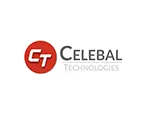B.Tech Mechanical Engineering (Robotics and Automation)
Programme Overview
The MIT-WPU B.Tech Mechanical Engineering (Robotics and Automation) programme integrates disciplines from Mechanical Engineering, Electronic Engineering, Robotics, and Computer Science into an advanced, comprehensive curriculum. This programme equips you with the skills to design and develop robots and intelligent control systems, driving advancements in productivity, safety, and efficiency across sectors such as manufacturing, aerospace, defence, and healthcare.
Key areas of study include Energy Engineering, along with hands-on exposure to industry-relevant software tools like AutoCAD, SolidWorks, and CATIA. This combination prepares you for highly competitive careers in robotics, automation, and allied industries focused on enhancing industrial automation processes and developing innovative robotics solutions.
Major Tracks
- Mechanical Design & Simulation
- Control Engineering
- Materials, Manufacturing & Automation
- IoT & Artificial Intelligence
- Robot System Building
Duration & Fees
Duration
4 Years
Applications Open for 2026
Fee Per Year
₹ 3,65,000
Scholarship
| Scholarship for AY 2026-27 | JEE Main Percentile | MH-CET Percentile |
|---|---|---|
|
Dr. Vishwanath Karad Scholarship (100%) |
94 & Above |
95 & Above |
|
MIT-WPU Scholarship I (50%) |
92 & Above |
93 & Above |
|
MIT-WPU Scholarship II (25%) |
91 & Above |
92 & Above |
Note: Best of JEE 2026 or MHT-CET 2026 Score will be considered for availing the scholarship.
Terms & Conditions Apply:
- All Scholarships are awarded on a First Come First Serve basis. All Scholarships are awarded as fee adjustments.
- To continue the scholarship for the entire duration of the programme, a minimum level of the academic score has to be maintained at an 8 CGPA across all semesters, attendance is to be maintained at a minimum of 80 percent, with no live backlogs in any subject/programme and no semester break, and there should be no disciplinary action against the student.
For more detailed information visit our website: https://mitwpu.edu.in/scholarships
Eligibility
A minimum of 50% aggregate marks in Class 10+2/ HSC, with English as a compulsory subject and A minimum of 50% aggregate marks in any one of the following subject groups:
- PCM (Physics, Chemistry, Mathematics),
- Physics & Mathematics with any Technical Vocational Subject
- PCB* (Physics, Chemistry, Biology*),
[*Biology/Biotechnology is applicable only for the Bioengineering Programme.] (Minimum 45% aggregate marks for candidates belonging to the Reserved Category from Maharashtra State).
OR
A minimum 60% aggregate marks in a Diploma in Engineering & Technology in a relevant branch from a government-approved technical board.
Selection Process
Admissions are based on the scores of JEE 2026/ MHT-CET 2026/ PERA-CET 2026, or MHT-CET-B* 2026/ NEET 2026* (*applicable only for the Bioengineering programme), along with a 500-word Statement of Purpose (SOP) written by the candidate
Programme Highlights
- Case-Based Learning and Hands-On Training : Gain practical experience with industrial robots, cobots, and machine vision systems, preparing you for real-world applications.
- Strong Industry Linkages : Collaborate with over 231 corporates across automotive, aerospace, electronics, and pharma sectors for training, research, and development.
- Practical Exposure : Benefit from six-month internships and national/international immersion programmes to gain hands-on experience and a global perspective.
- Entrepreneurship Support : Leverage funding, mentoring, and networking opportunities through MIT-WPU’s Technology Business Incubator (TBI) to kickstart your entrepreneurial journey.
- Cutting-Edge Labs : Access advanced facilities for robotics, motion control, SCADA, and PLC programming to enhance your technical skills and expertise.
Programme Structure
| Semester | Course Type | Course Name/Course Title | Total Credits |
|---|---|---|---|
|
I |
UC | Indian Constitution | 1 |
|
I |
UC | Environment and Sustainability | 1 |
|
I |
UC | Yoga - I | 1 |
|
I |
UC | Social Leadership Development Program | 1 |
|
I |
UC | Financial Literacy | 1 |
|
I |
PF | Linear Algebra and Differential Calculus | 3 |
|
I |
PF | Engineering Physics | 3 |
|
I |
PF | Engineering Chemistry | 3 |
|
I |
Program Capstone Project/Seminar and Internships | Ideas and Innovations in Manufacturing | 1 |
|
I |
PF | Biology for Engineers | 2 |
|
I |
PF | Engineering Graphics | 3 |
|
I |
Program Capstone Project/Seminar and Internships | Computer Aided Modelling | 2 |
| Total Credits: | 22 |
| Semester | Course Type | Course Name/Course Title | Total Credits |
|---|---|---|---|
|
II |
UC | Yoga - II | 1 |
|
II |
UC | Co-creation | 1 |
|
II |
UC | AI for everyone | 2 |
|
II |
UC | Foundation of Peace | 2 |
|
II |
UC | Indian Knowledge System (General) | 2 |
|
II |
UC | Sports | 1 |
|
II |
PF | Integral Calculus | 3 |
|
II |
PF | Introduction to Electrical and Electronics Engineering | 3 |
|
II |
PF | Programming and Problem Solving | 3 |
|
II |
PF | Engineering Mechanics | 3 |
| Total Credits: | 21 |
| Semester | Course Type | Course Name/ Course Title | Total Credits |
|---|---|---|---|
|
III |
UC | Spiritual and Cultural heritage: Indian Experience | 2 |
|
III |
UC | Research Innovation Design Entrepreneurship (RIDE) | 1 |
|
III |
UE | University Electives - I | 3 |
|
III |
PF | Engineering Mathematics | 4 |
|
III |
PM | Introduction to Robotics | 4 |
|
III |
PM | Mechanics of Materials | 3 |
|
III |
PM | Basic IoT Lab | 1 |
|
III |
PM | Material Science & Engineering Metallurgy | 3 |
| Total Credits: | 21 |
| Semester | Course Type | Course Name/ Course Title | Total Credits |
|---|---|---|---|
|
IV |
UC | Rural Immersion | 1 |
|
IV |
UC | Life Transformation Skills | 1 |
|
IV |
UE | University Electives - II | 3 |
|
IV |
PM | Manufacturing Science | 4 |
|
IV |
PF | Indian Knowledge System (Sci. & Tech.) | 2 |
|
IV |
PF | Robot Kinematics & Dynamics | 4 |
|
IV |
PM | Design of Machine Elements | 3 |
|
IV |
Program Capstone Project/ Seminar and Internships | Robotics Engineering Software Lab | 1 |
|
IV |
PM | Thermo-Fluids | 3 |
| Total Credits: | 22 |
| Semester | Course Type | Course Name/Course Title | Total Credits |
|---|---|---|---|
|
V |
UC | Managing Conflicts Peacefully: Tools and Techniques | 2 |
|
V |
UE | University Electives - III | 3 |
|
V |
PE | Program Elective - I | 4 |
|
V |
PF | Data Science for Engineers | 2 |
|
V |
PM | Robot Drive Systems and Programming | 4 |
|
V |
PM | Hydraulics and Pneumatic Systems | 4 |
|
V |
PF | Microcontroller and Applications | 3 |
| Total Credits: | 22 |
| Semester | Course Type | Course Name/Course Title | Total Credits |
|---|---|---|---|
|
VI |
UC |
National Academic Immersion Program | 2 |
|
VI |
PE |
Program Elective - II | 4 |
|
VI |
PM |
Industrial Automation | 4 |
|
VI |
PM |
Artificial Intelligence and Machine Learning | 3 |
|
VI |
PM |
Robot Control System | 3 |
|
VI |
Program Capstone Project/Seminar and Internships |
Seminar | 1 |
|
VI |
Program Capstone Project/Seminar and Internships |
Mini Project Lab | 1 |
| VI |
PM |
Robot Operating System | 4 |
| Total Credits: | 22 |
| Semester | Course Type | Course Name/Course Title | Total Credits |
|---|---|---|---|
|
VII |
PE |
Program Elective - III |
4 |
|
VII |
PE |
Program Elective - IV |
4 |
|
VII |
PM |
Balancing and Transmission |
3 |
|
VII |
Program Capstone Project/Seminar and Internships |
Capstone Project |
8 |
| VII |
PM |
Robot Vision and Perception |
2 |
|
|
Total Credits: |
21 |
| Semester | Course Type | Course Name/Course Title | Total Credits |
|---|---|---|---|
|
VIII |
Programme Capstone Project/Seminar and Internships |
Internship |
14 |
|
Total Credits |
14 |
Career Prospects
Robotic Research Engineer
Robotic Engineers & Automation Engineer
Robotic Test Engineer
Automation System Engineer
Robotic Simulation Engineer
Programme Outcomes
- Learn and apply the fundamentals of mechanical engineering, robotics, control systems, and automation to real-world scenarios.
- Design and implement intelligent control strategies for robotic systems and machines, especially in manufacturing contexts.
- Develop innovative engineering components while showcasing excellent problem-solving and project management skills.
- Utilise cutting-edge tools, including robotic simulation and automation software, to solve complex engineering problems.
- Work effectively with diverse teams and communicate technical concepts clearly and confidently.
Placements & Recruiters
100% Placement Assistance
Top Recruiters
FAQs
Candidates must have passed Class 10+2/ 12th with a minimum 50% aggregate (45% for reserved category from Maharashtra) in PCM or PCB or Physics & Mathematics with any Technical Vocational Subject. Physics, Mathematics/ Biology* & English are Compulsory subjects with Chemistry/Biotechnology* or Technical Vocational Courses in Class 10+2/ 12th or equivalent examination.
OR
Passed Diploma in Engineering & Technology with minimum 60% marks in a relevant branch from a government-approved board.
The programme provides extensive practical exposure through varied projects related to applications of robotics. These projects involve designing new robotic systems, designing cobots, applying motion control techniques, and integrating machine vision with real-life problems. These projects foster creative thinking and give industrial exposure towards robotics and automation.
Yes, the programme offers six-month internships, which are an integral part of industry exposure. MIT-WPU partners with top industry leaders such as Siemens, TATA, and Bosch, exposing students to hands-on training in robotics, automation, and robot system design. These internships improve technical acumen and foster strong professional connections.
The department has state-of-the-art research laboratories with robotic arms, machine vision systems, motion control stations, and factory robots for hands-on experience. Furthermore, software such as SolidWorks, AutoCAD, and ANSYS allows for students to simulate and model systems prior to making them. These facilities prepare students adequately to meet real-world robotics challenges.
Research and innovation form the core of this programme. Students are supported to design new robot systems and build automated solutions. With access to advanced tools, equipment, and mentorship, they pursue innovative projects for developing robotics and automation. Industry collaborations and the MIT-WPU Technology Business Incubator (TBI) also aid students in bringing breakthroughs in research and innovation.














 admissions@mitwpu.edu.in
admissions@mitwpu.edu.in
